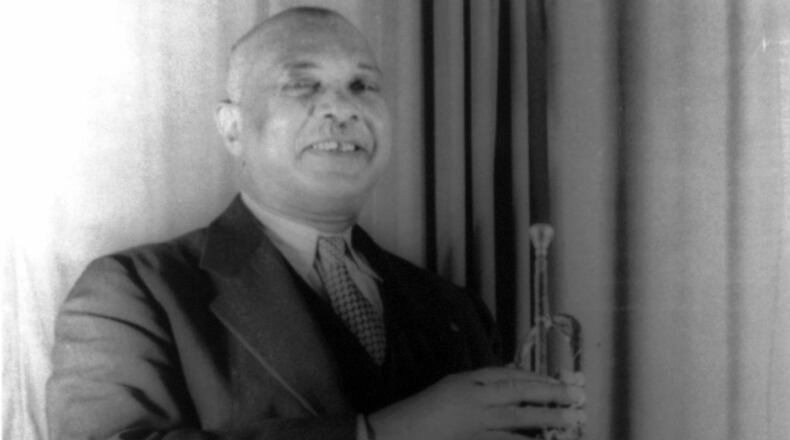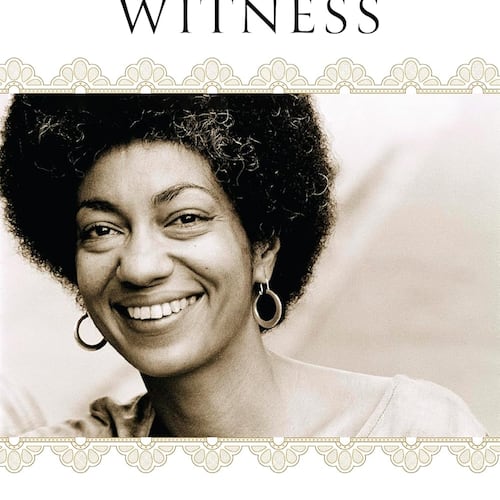During the month of February, The Atlanta Journal-Constitution will publish a daily feature highlighting African American contributions to our state and nation. This is the fifth year of the AJC Sepia Black History Month series. In addition to the daily feature, the AJC also will publish deeper examinations of contemporary African American life each Sunday.
In the early 1900s, musician and bandleader W.C. Handy heard a man in northeast Mississippi playing the “weirdest” music he’d ever heard.
“His face had on it the sadness of the ages,” Handy writes in his 1941 autobiography, “Father of the Blues.”
“As he played, he pressed a knife on the strings of the guitar in a manner popularized by Hawaiian guitarists who used steel bars. … The singer repeated the line three times, accompanying himself on the guitar with the weirdest music I had ever heard.”
The sound was so impactful on Handy that he took its style and implemented it into his own music.
Within a few years, Handy had composed the introduction of what would become known as blues to the world with his song “Memphis Blues.” The song, published on sheet music in 1912 and widely distributed, became one of the most popular blues tunes.
RELATED: Ethel Waters: Singer and Oscar-nominated actress broke barriers
Originally recorded, the song is a three-minute instrumental, but it was sold, lyrics were added and it was ultimately recorded by a number of artists and performers.
“Handy’s ‘Memphis Blues’ was hugely significant,” says Elijah Wald, author of “The Blues: A Very Short Introduction.” “It started the blues craze and made the blues a key marketing term.”
Without W.C. Handy, there may have been no B.B. King or any of the other blues greats who’ve graced stages around the world, including along Memphis’ famed Beale Street where Handy is a legend.
But Handy almost never got the chance. Raised in a strict religious family, his parents wanted him to have a career in the church. To them, “Becoming a musician would be like selling my soul to the devil,” he wrote in his memoir.
Though that parentage label has been bestowed on Handy, he didn’t actually invent the blues, but he made it popular and ultimately an international musical genre.
“I didn’t invent the blues. No one invented them. The blues were melodies sung by Negro roustabouts, farmers, wanderers from Missouri to the gully,” he said in a recording, which was featured in NPR’s Hearing Voices radio project. “My part in history was to introduce the blues form to the general public as a medium for my own feelings.”
RELATED: ‘Lift Every Voice and Sing’: Whether anthem or hymn, song invokes pride
Although Handy is most known for his work in Memphis, he was actually born in Florence, Alabama. His father allowed organ lessons because organs were played in church, but Handy hid other instruments like the guitar and cornet — and his love for them — from his parents. After apprenticing in a string of positions and teaching for a short time in Alabama, Handy started a band and followed his musical passions to St. Louis.
But the group couldn’t find work so it disbanded. He eventually joined up with another band, traveling around the country playing gigs. Around 1903, Handy was traveling in the Mississippi Delta area and heard the music that changed his life. His band, living and performing in Memphis by then, was popular and played the clubs on Beale Street.
RELATED: Josephine Baker: France could claim her, America couldn’t tame her
Other songs followed “Memphis Blues,” but it was Handy’s “St. Louis Blues” that became his most popular work.
The “St. Louis Blues” was composed by Handy in 1914, but recorded and popularized by blues singer Bessie Smith in 1925. The song has been covered by musicians in almost every genre from crooner Bing Crosby to jazz pianist Herbie Hancock. It made Handy millions of dollars in royalties and inspired a number of films, including one based on Handy’s life, and is the namesake of the National Hockey League team.
Handy ultimately moved to New York, where he died in 1958, but his life and legacy live on in the South. Museums bearing his name are open in his birthplace of Florence and on Beale Street in Memphis.
BLACK HISTORY MONTH
Throughout February, we’ll spotlight a different African American pioneer in the Living section every day except Fridays. The stories will run in the Metro section on that day.
Go to www.ajc.com/black-history-month/ for more subscriber exclusives on people, places and organizations that have changed the world and to see videos and listen to Spotify playlists on featured African American pioneers.
About the Author
The Latest
Featured



